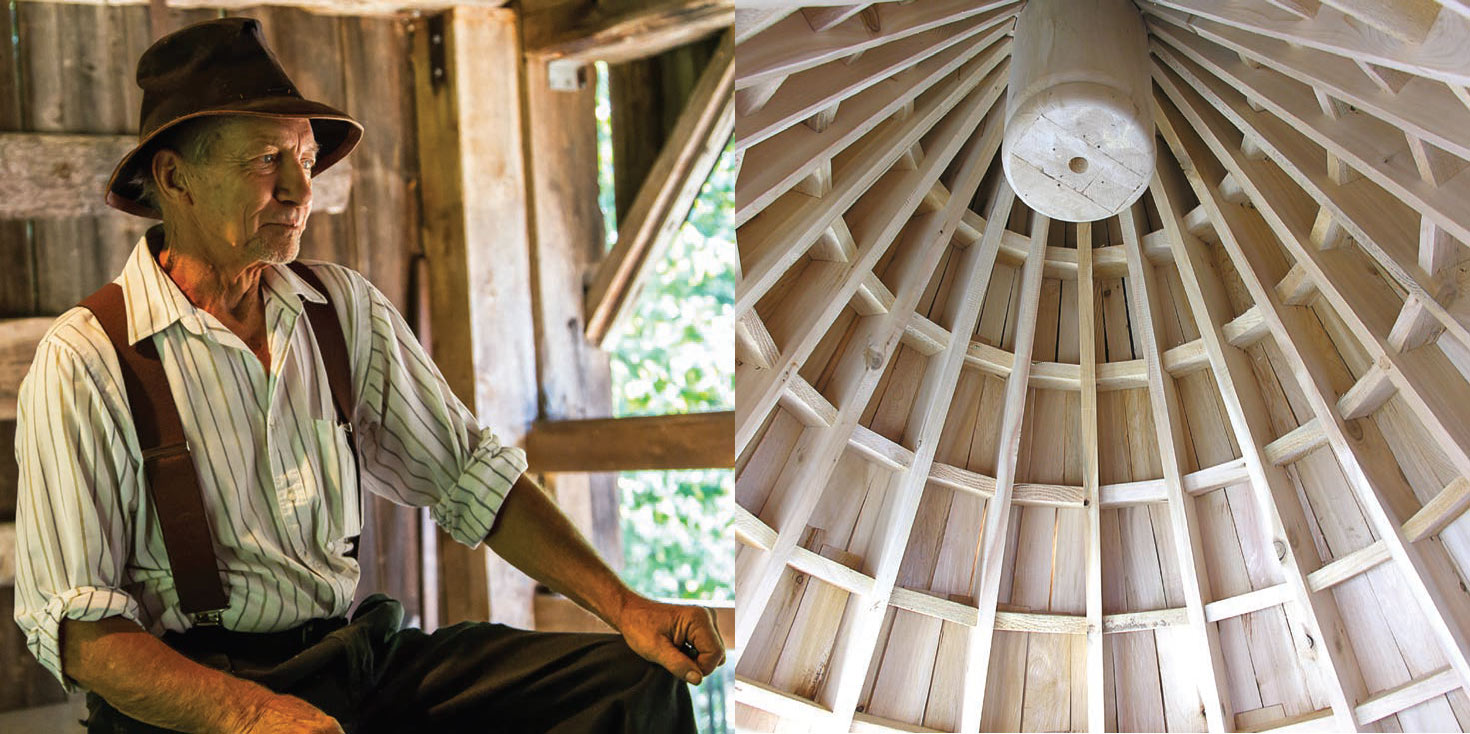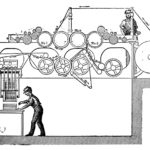
The art of Peter Sporring spans a creative range from whimsical works of art to objects with a practical purpose.
WHEN PETER SPORRING was five years old his grandfather Soren said to him; “Peder,” pronouncing his grandson’s name in the elder’s Danish tongue, “you might be able to chop a tree down but you are never going to kill it,” he advised. “It will continue to shrink and swell as it draws life from the air around it.” The notion of a tree as life force, the concept of the forest as an ecosystem is a creed that Peter Sporring has adhered to from that day forward. Now, seven decades later, while standing before a row of windows in his workshop in Belleville, the admitted ‘man of few words’ talks about how his life has been shaped by wood.
“I thrive in the forest; it’s nurturing to be surrounded by trees,” Sporring begins. In 1949 his father was a herdsman on a farm outside of Ottawa where the owner at that time, W.J. LeClair, published a magazine called Trees of Canada, the official medium of the Canadian Lumberman’s Association. “LeClair said that when woodlands were exploited for profit, replanting and forest regeneration were clear responsibilities. That reinforced my thinking,” he says. “On the second dairy farm we lived on, the owner would encourage me to build or repair anything in wood that came along. At age fourteen, that was a lot more interesting than milking cows or doing farm chores.”
Sporring later graduated from Kemptville Agriculture College in Eastern Ontario where training in business management and farm mechanics added to his experience. He started his own business in 1983, combining his many skills – metal fabrication, fine wood carving, furniture building and house construction – and then went on to a career at Bell Canada. Later, as he reached his goal of independence, Sporring’s multiple skills offered advantage and opportunity. “I now take pride in building lathes and portable sawmills to harvest and shape my primary materials – lumber.”
“To sit on a log in the middle of the woods is to appreciate all forms of life that are constantly changing, either because of us or in spite of us.” PETER SPORRING
Outfitted in a wood turner’s smock, Sporring reaches for a roughing gouge from a row of finely honed chisels and gouges. “I will often temper the steel and shape a wooden handle to make a tool for certain projects. Whether turning a vessel or bowl out of one block of wood or from a segmented form that sometimes combines hundreds of pieces…tools need to suit their intended purpose.”
Sporring sharpens his gouge before powering up his 1950s Delta lathe. The clatter fills the room. His hand eases the gouge onto a tool rest that offsets the force of a toaster-sized block of combined walnut and maple wood spinning at 700 rpm. The contact of steel and lumber unleashes a storm of wood chips as the woodblock slowly transforms into a bowl shape.
“I like a soft finish using tung oil for completed work,” he says.
With his long-time partner Pam, Sporring regularly retreats to a self-built, off-grid cabin near an environmentally protected area in central Hastings County. “I think the forest and humans have the potential to enhance each other in symbiotic relationship,” he contemplates. “Since my teenage years the woods have been a place to go, for escape, for a sense of wonder.”
Sporring’s relationship with woodlands is about stewardship. Harvesting trees on the Hastings property allows for new growth while providing raw material for building furniture, turned pieces and firewood.
“I like the physical part of harvesting, burning off energy,” he says. “Then, when the machines are shut down, waiting is virtual silence, save for the harmonics of nature.”
Sporring sources ninety per cent of his raw lumber from his hundred-acre property, where thirty years ago he planted 60,000 trees of mixed forest species. “It’s consoling to be with these trees now as they reach maturity,” he says. “To sit on a log in the middle of the woods is to appreciate all forms of life that are constantly changing, either because of us or in spite of us.”
On a workbench in his Belleville shop, Sporring points out a recently completed endeavour. “My grandfather was an avid chess player,” he reminisces. “I had him in mind as I worked on this chess board. I turned each knight, bishop, queen – every piece on the lathe – to round the bases and then carved the forms by hand.” He then details how he inlaid walnut and maple sections for the board surface and rendered the cabinetry work to tie in a base and storage drawer.
“Some of this wood came from my cabin retreat,” he reflects. “I guess that makes this chess game a homage to my grandfather, a grand master when passing down life lessons.”
Story by:
Conrad Beaubien
Photography by:
Sacha Warunkiw & Peter Sporring

